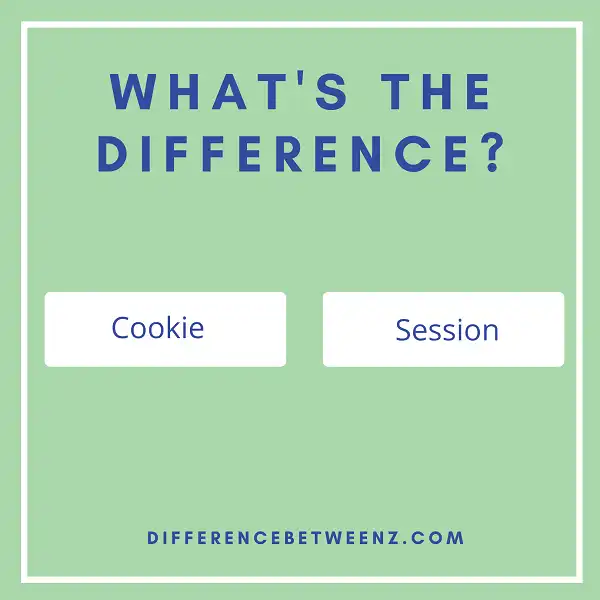Cookies and sessions are two of the most common ways to store data in web applications. But what’s the difference between them? In this article, we’ll explore the differences between cookies and sessions, and when you should use each one. We’ll also look at some of the pros and cons of each approach. By the end, you’ll be able to decide which storage method is best for your own web application.
What is a Cookie?
A cookie is a small file that a website stores on your computer. Cookies are used to help websites keep track of your visits and activity. When you visit a website, the website may send a cookie to your computer. This helps the website keep track of your visit so that it can provide you with a personalized experience.
- For example, if you visit a website and add items to a shopping cart, the website may use a cookie to remember what you added to your cart. Cookies can also be used to help websites keep track of your login information so that you don’t have to re-enter it every time you visit the site.
- Some cookies are temporary, while others are permanent. Temporary cookies are deleted when you close your browser, while permanent cookies stay on your computer until they expire or are manually deleted.
- Cookies can be beneficial because they allow websites to provide you with a better experience. However, some people disable cookies because they’re concerned about their privacy.
What is a Session?
- A Session is a unique identifier that a web browser assigns to a specific user. This identifier allows a website to keep track of a user’s activity as they move from page to page. Session store information typically includes data such as login information, preferences, and recently viewed items.
- This information helps to improve the user experience by allowing websites to provide personalized content and recommendations. In addition, session store information can be used for security purposes, such as detecting attempts to access an account from multiple locations.
- By understanding how session store information works, we can better appreciate the many ways that it helps to make our online lives easier and more convenient.
Difference between a Cookie and a Session
The main difference between a cookie and a session is that a cookie is stored on the user’s computer while a session is stored on the server.
- When a user visits a website, their browser sends a request to the server. The server then responds by sending back the requested webpage along with a set of cookies. The browser then stores these cookies on the user’s computer.
- Each time the user sends a new request to the server, their browser sends along any relevant cookies. This allows the server to keep track of the user’s activity and personalize their experience.
- Sessions, on the other hand, are not stored on the user’s computer. Instead, they are stored on the server. When a user visits a website, their browser sends a request to the server. The server then responds by sending back the requested webpage along with a unique session ID.
The browser then stores this ID in a cookie. Each time the user sends a new request to the server, their browser sends along this ID. This allows the server to keep track of the user’s activity and personalize their experience. However, since sessions are not stored on the user’s computer, they are less secure than cookies.
Conclusion
Cookies and sessions are two different ways of tracking users, but what’s the difference? A cookie is a small piece of data that gets stored on a user’s computer. This data can include anything from login information to shopping cart contents. Once a cookie is set, it will continue to track the user as long as it remains on their computer. A session, on the other hand, only lasts for as long as the user is actively browsing your website. If they leave and come back later, a new session will start.


